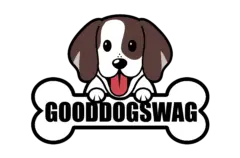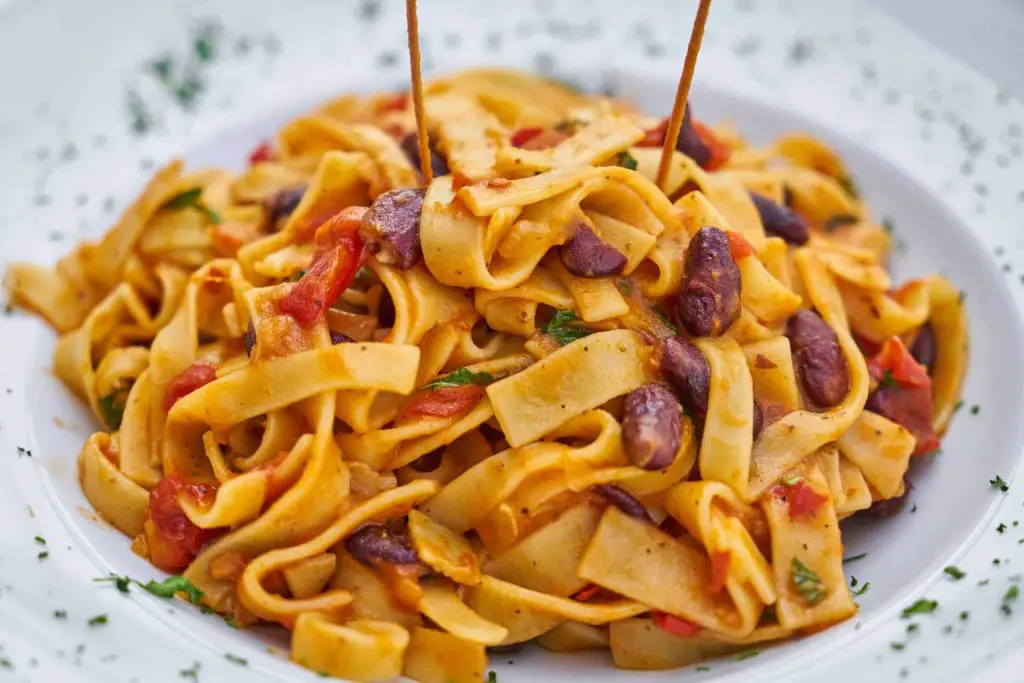Most dogs like food, especially when it comes from their favorite human’s plate. Whether you are looking for safe food to share with your pooch or perhaps you want to know if the noodle your dog ate off the floor is okay for them; you will want a clear answer on the question can dogs eat pasta?
Pasta is a general term given to flour, water and eggs mixed together to be pressed into different shapes. It is boiled and then mixed with butter or sauce. Noodles are another word used to mean pasta.
Other forms of pasta that may be familiar to you are spaghetti pasta, angel hair pasta, and Fettuccine pasta. Pasta can come in different shapes like shells, elbows, pipes, and bows.
Can Dogs Eat Pasta? Professional veterinarians can vary in their answers; some say it is okay in moderation and others advise to keep it away from your dog. Depending on the size of the dog, one to two plain pasta noodles should be fine for your dog to consume. If your dog has a food allergy, it would best to not serve them pasta.
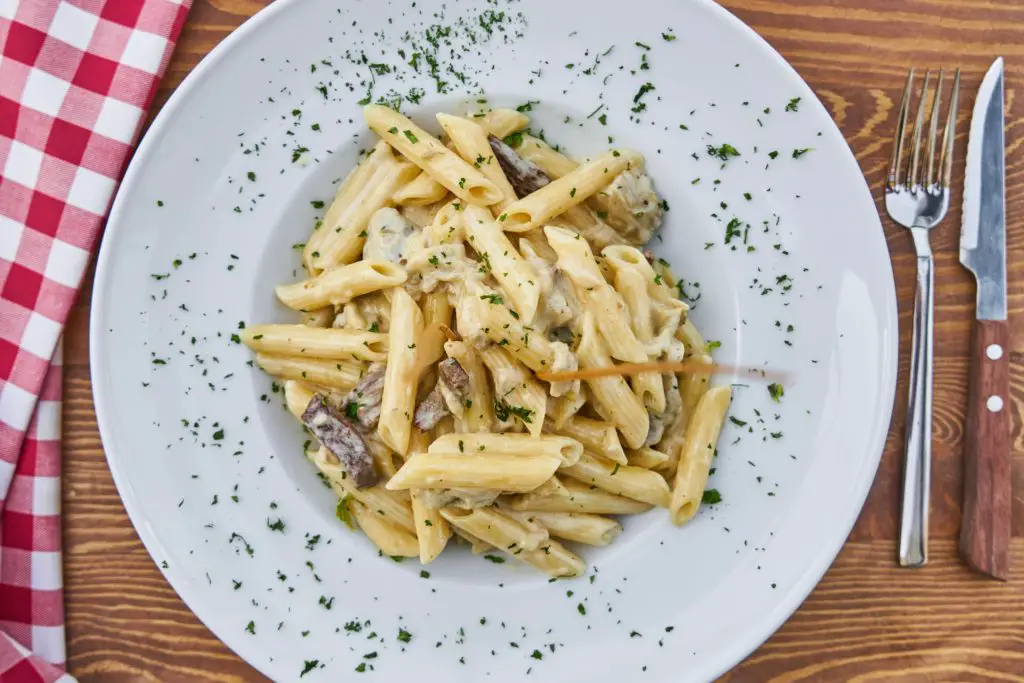
In this article, Can Dogs Eat Pasta, you will learn about the different ingredients in pasta, how much pasta is okay for your dog to consume and the cautions of serving your dog pasta.
- Various Ingredients of Pasta
- Can Pasta Have Nutritional Value for Dogs?
- How Much Can My Dog Eat?
- Avoid these Ingredients when Sharing Pasta with Your Dog
- Alternatives to Pasta
Pasta is an Italian based food that is fun to eat. It’s probably just as fun to see your dog eat a few spaghetti noodles too. The ingredients in pasta can be a simple flour mixture or made with legumes and water.
Related Articles:
- A Review of the Top 5 Best Brooms For Dog Hair
- A Review of the 5 Best Peanut Butters for Dogs
- A Review of the 4 Best Dog Shampoos for Itchy Skin
- A Review of the 5 Best Dog Brushes For Short Hair
- A Review of the 6 Best Dog Harnesses for Hiking
Can Dogs Eat Pasta? Various Ingredients of Pasta
Originally pasta was made from flour (enriched or whole wheat), water, eggs, and salt. The types of pasta available at the markets include ingredients that are safe for those with a gluten or egg allergy.
Gluten free pasta is often made with a blend of flour that could include brown rice flour, white rice flour, corn, millet, buckwheat, cassava, quinoa, and amaranth.
Grain free pastas that are high in protein often have ingredients that include black beans, lentils, and chickpeas.
All the ingredients mentioned for plain pasta, gluten free pasta and grain free pasta are not toxic to dogs. Now that we have that information, can dogs eat pasta? Yes, however, the key is consuming it plain and only one to two pieces on occasion.

Related Articles:
Can Dogs Eat Pasta? Can Pasta Have Nutritional Value for Dogs?
Dog owners that share a noodle or two with their dog hope that it might have nutritional value for their dogs. Keep in mind that pasta is a high carbohydrate food that is not essential to a dog’s overall health.
Can Dogs Eat Pasta? Pasta is made from enriched white or wheat flour has no health benefits to dogs. However, non-traditional pastas that are made for those with gluten or grain intolerance or allergies can have some nutritional benefits for dogs.
Chickpea flour is one ingredient in grain-free pasta. It contains healthy protein, trace minerals and fiber. Buckwheat flour can be found in gluten free pasta. It is high in fiber and contributes to a healthy digestive tract in dogs.
Even though the non-traditional flours can have nutritional benefits, other ingredients added to form the pasta could cause issues.
One ingredient that is often used in grain free pastas is xanthan gum. It is a thickener that can be found in commercial canned dog food as well. Xanthan gum is not toxic to dogs in small quantities, but it can cause gastrointestinal issues like diarrhea.
Overall pasta does not have enough nutritional benefits to be considered a healthy contribution to the dog’s daily diet. Can dogs eat pasta? Yes, it is not toxic to dogs without food allergies.
Related Articles:
- How to Cook Marrow Bones for Dogs
- A Review Of The Top Five Best Foods for Hiding Dog Pills In
- A Review of the Top 5 Best Dog Bones For Aggressive Chewers
- A Review Of The Top 5 Best Bone Broths for Dogs
- A Review Of The Top 5 Best Dog Whistles
Can Dogs Eat Pasta? How Much Can My Dog Eat?
It is okay for your dog to eat one to two pieces of pasta on occasion. Large dogs can eat up to one cup of pasta without causing too much digestive upset.
Your dog has eaten too much pasta if they appear fatigued, gain weight or experience excessive thirst or urination.
Can Dogs Eat Pasta? Dogs with sensitive stomachs and food allergies should not eat pasta. An allergic reaction to the ingredients in pasta could include vomiting, diarrhea, frequent ear infections, skin irritations, or consistent itching.
When your dog grabs a stray pasta shell off the floor, there is usually no need to panic. Pasta is not toxic to your dog. For small dogs that have food sensitivities, just monitor them for the next 24 hours.
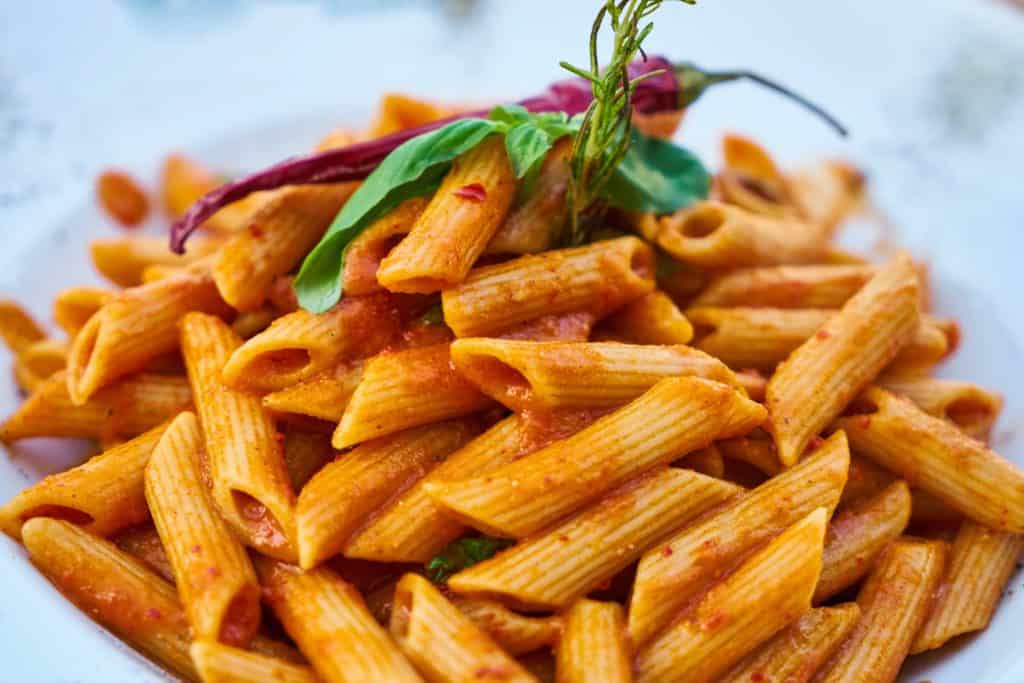
Related Articles:
- The Best Canned Dog Food for Dogs with Sensitive Stomachs
- A Review Of The Top 5 Best Tactical Dog Harnesses
- How to Build an Outdoor Dog Potty Area on Concrete
- A Review of the 5 Best Dog Muzzles
- A Review Of The Top 5 Best Dog Clickers
Can Dogs Eat Pasta? Avoid these Ingredients when Sharing Pasta with Your Dog
Most dogs can eat plain cooked or uncooked pasta. You will want to avoid certain additional ingredients when sharing pasta with your dog.
First, always read the ingredients list on the package of pasta. Three ingredients that can cause your dog to potentially have gastrointestinal issues are salt, onions, and oregano.
Added Salt. Salt is a necessary ingredient in making homemade pasta. The ingredient list also might include salt for the pasta you purchase at the store. Know how much salt is in the pasta you are cooking.
Too much salt can cause a dog to have neurological problems such as dizziness, discomfort, and seizures. Dogs with health conditions such as heart, kidney and liver diseases need to be extra cautious about their daily intake of salt.
One type of noodles that is known for its high salt content is Ramen noodles. The seasoning packets often contain more salt, additives and onion powder, all ingredients that should not be fed to your dog.
Onions. All onions are toxic to dogs. A compound found in onions causes the breakdown of red blood cells that lead to red blood cell destruction, which if left unnoticed can lead to anemia.
Are you unsure if your dog ingested onions? Monitor your dog for these symptoms, lethargy, loss of appetite, discomfort, vomiting, diarrhea, discolored urine, or loss of coordination. Talk to a veterinarian right away.
Oregano. This herb is a popular ingredient found in pasta sauce. It is not toxic to dogs; however, it does cause digestive upset like diarrhea and vomiting.
One more ingredient associated with pasta is grated cheese. Plain cheese is okay for your dog to digest. If your dog eats cheese too frequently and in large quantities it could result in weight gain, gastrointestinal issues, or potential heart problems.
Related Articles:
- Ultimate Guide: How To Take Care Of A Puppy
- Ultimate Guide: How To Take Care Of A Dog
- Ultimate Guide: How To Take Care Of A Senior Dog
- The Benefits of Owning a Dog
- Top 12 Tips for First Time Dog Owners
Alternatives to Pasta
A common side dish served with pasta is salad. The main ingredient in salad is attractive to dogs – crispy lettuce! Can dogs eat lettuce? While you are preparing your salad, you can set aside a few washed and chopped pieces of lettuce for your canine companion.
Lettuce provides your dog with many health benefits. Dogs can find lettuce satisfying and even comforting to their digestive due to the chlorophyll found in lettuce.
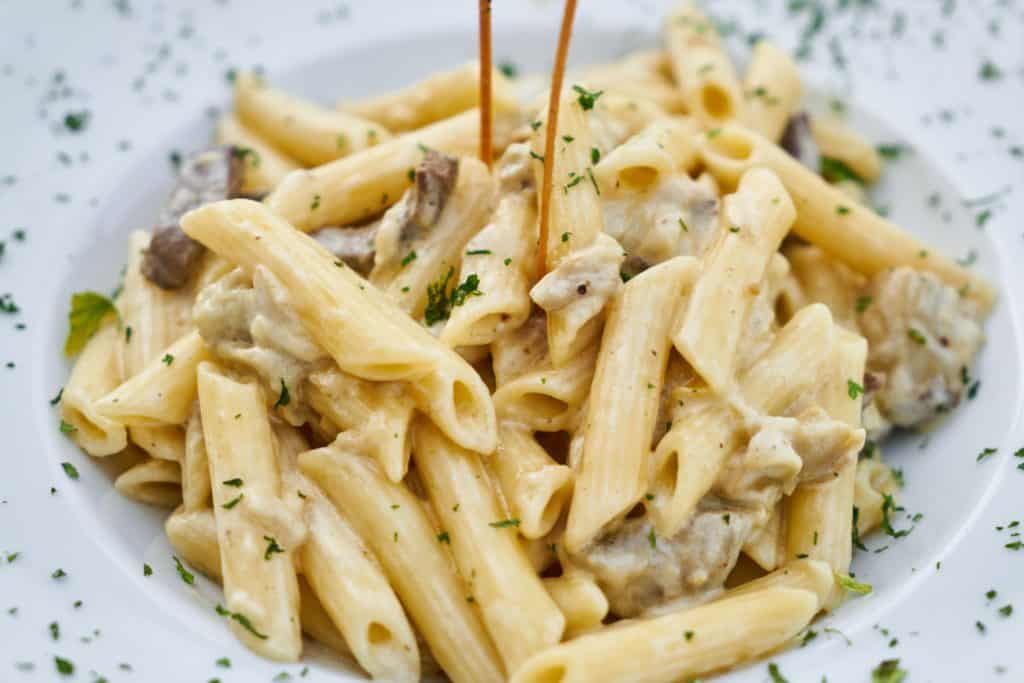
Related Articles:
- How to Cook Liver for Dogs
- How to Get a Picky Dog to Eat
- How to Stop Your Dog from Peeing When Excited
- How to Keep Your House from Smelling like Dog
- How to Measure a Dog for a Harness
Can Dogs Eat Pasta?
Pasta is not toxic to dogs if they grab a morsel off the floor or if you toss them a cooked pasta noodle. It is not a food that should be part of the dog’s daily diet.
Dog owners that find pleasure in sharing a piece of cooked pasta with their pooch should be fine. Always monitor your dog if they eat a new food for signs of stomach upset. Be extra cautious to keep the pasta plain and avoid extra salt, onions, and oregano.
While you are preparing yourself a tasty salad to accompany your pasta, toss your dog a small piece of washed lettuce. It’s loaded with nutrients for both of you.
